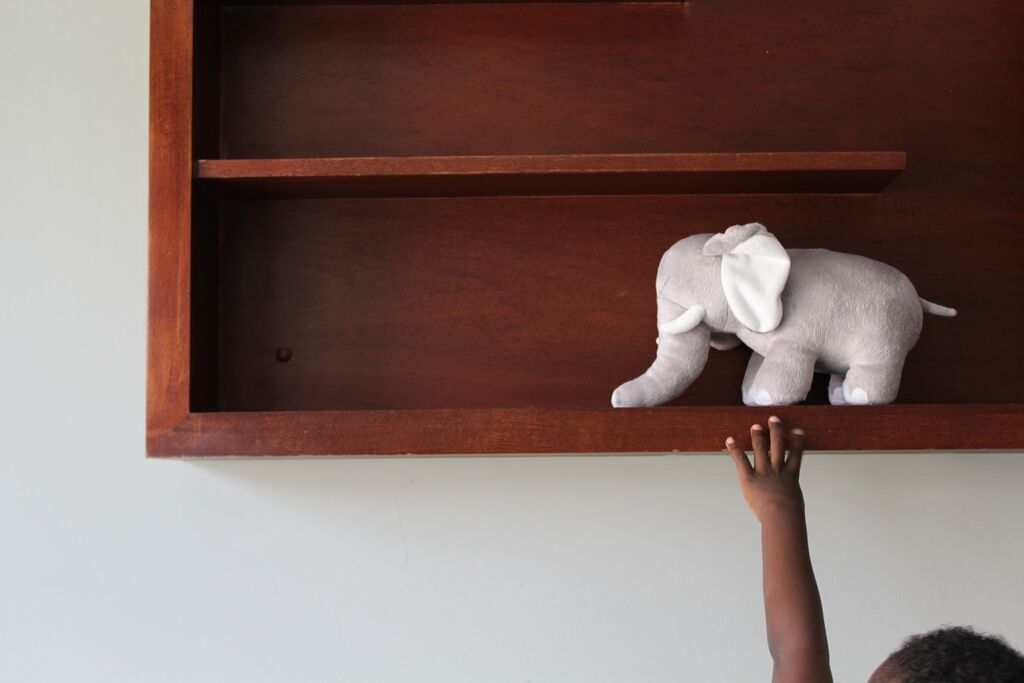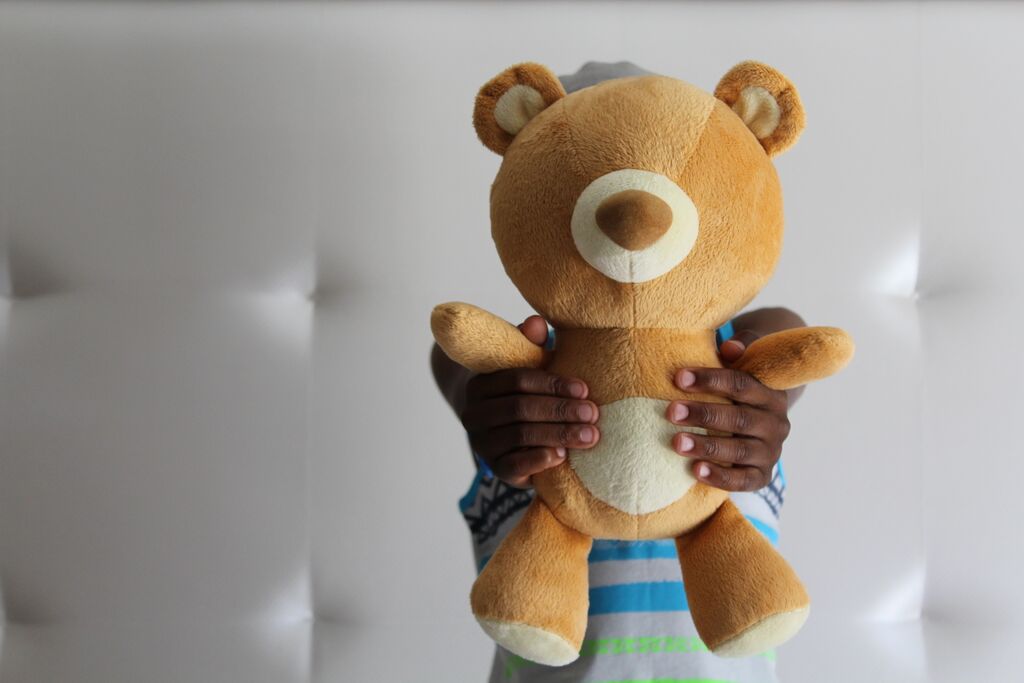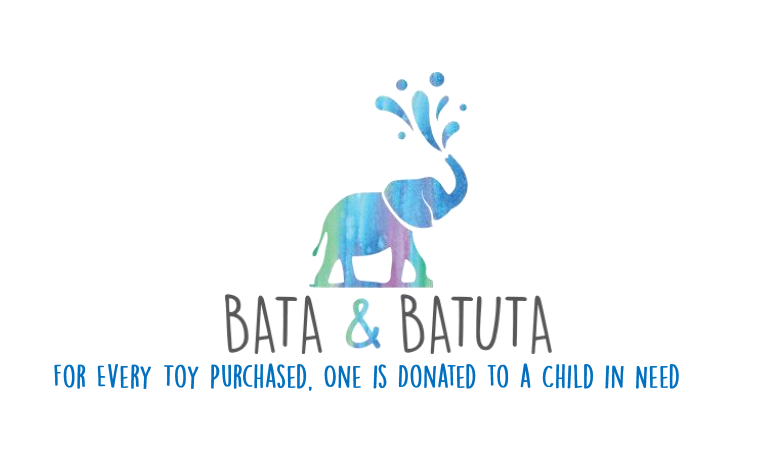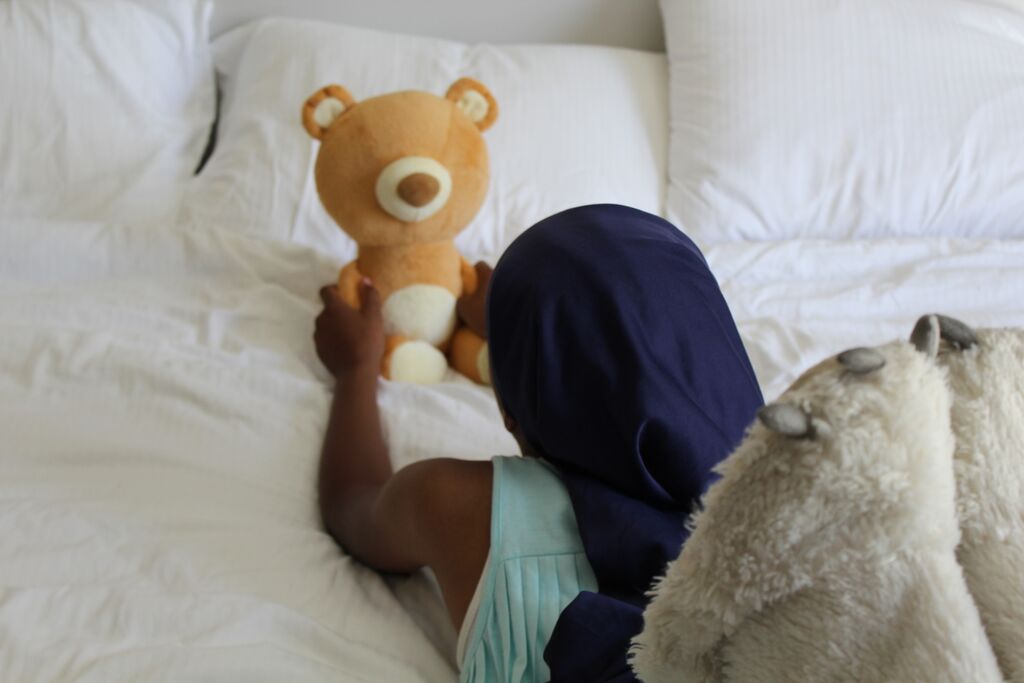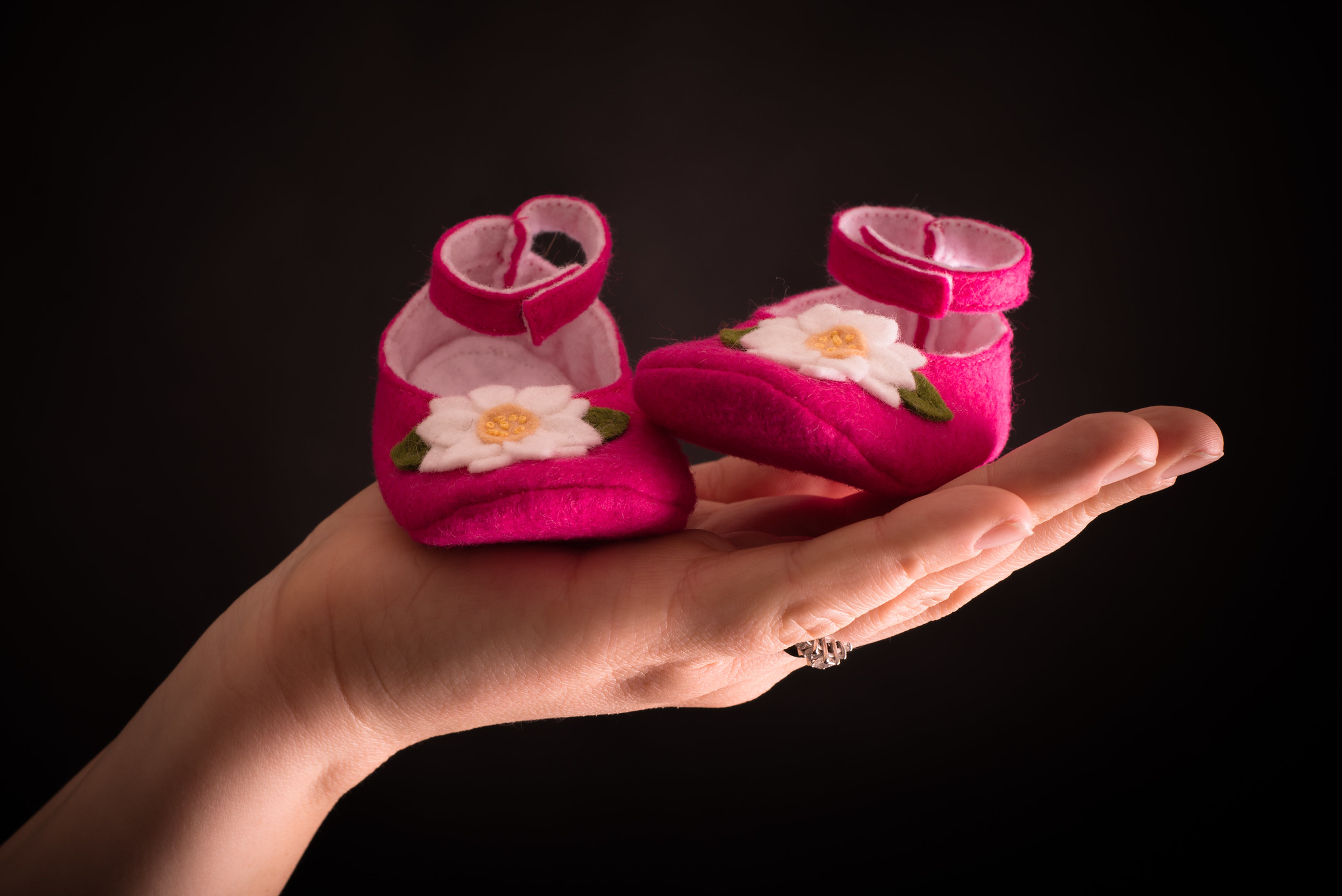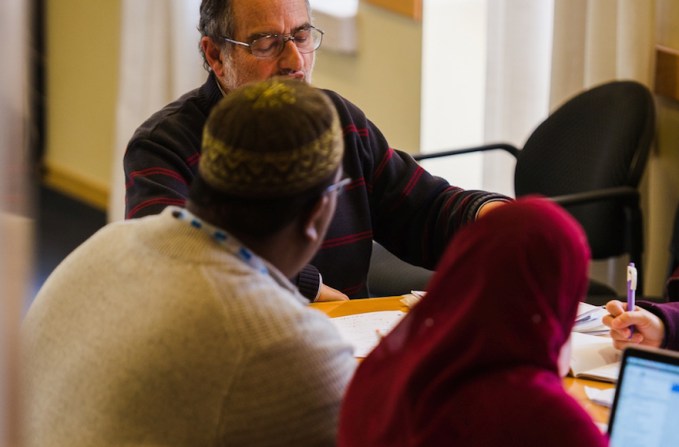My kids had the chance to play with the Bata & Batuta stuffed teddy bear and they just couldn’t let go. It’s soft and cuddly and feels so good to hold close. And most of all, the little tag on it that told us that for every toy purchased, one was donated to a child in need, gave us a warm, fuzzy feeling on the inside to complement the one on the outside.
After giving the bear a series of super-tight hugs, my toddler son noticed that the bear didn’t have any eyes! He asked me why and, while making a mental note to confirm with the Founders of Bata & Batuta, I told him because Allah doesn’t want us to create things that look like real, living animals. Read on to see if my answer was correct.
- On your company website, you provide us with a bare glimpse into your childhood and the story behind Bata & Batuta. Can you elaborate a bit on the story?
Ibraheem: The seeds for Bata & Batuta were planted five years ago when I bought my first pair of Toms shoes. Every time you buy a pair, they donate one to a child in need. I loved that I was doing good for someone by making an everyday purchase. I didn’t make any plans at the time, but I knew that one day I wanted to use the “buy one, give one” model as a way to give back.
As crazy as it sounds, the idea for Bata & Batuta hit me earlier this year as I was waking up from a nap. As an uncle I love nothing more than playing with my nieces and nephews. More importantly, coming from a family of teachers, I have always known how important creative play is for kids. On this particular day everything came together and I knew that my mission was to spread the “power of play”. My wife and I immediately got to work on our first line of plush, and the rest is history.
- Your current product line includes three plush animal toys. How did you decide to start there? And why did you choose not to add eyes on the animals?
WHY PLUSH?
- Perfect for Role Playing: Stuffed animals can be a great tool for children to play out situations, test emotions and build empathy for the perspective of others.
- Designed as a Blank Canvas: Our plush don’t have any facial expressions or accessories, making it easy for both boys and girls to let their imagination run free.
- Universally Used: Almost every society around the world, regardless of race, religion, or language play with some form of dolls or toy animals. We wanted our first toy to easily cross borders.
- They are fun! At the end of the day, we sell toys, and who doesn’t like hearing their kids laugh?
- What sets you apart from other toy vendors/creators? How do you reflect your faith through your products?
First and foremost, the thing that sets us apart from other toy makers is our mission to spread play to children in need. When you buy an item from Bata & Batuta, you are not only doing something good for yourself or a loved one, but you are also providing a toy to a child that needs it.
Our faith played a huge role in helping us solidify our mission and select which children to help. Orphans, the sick and the poor are three groups that we are encouraged to support and show kindness towards in Islam. With that said, we provide toys to children in those groups regardless of their race or religious background.
- Tell us the process by which your products help buyers give back to children in need?
We strive to distribute our toys as effectively as possible. As a result, we partner with existing non-profit organizations that are committed to serving these three groups. Here’s how it works:
- Step One: Once a consumer buys a Bata & Batuta toy, we set one aside for future donation.
- Step Two: Twice a year, we donate brand new toys to our non-profit partners in accordance with the number of items sold. We carefully select from a range of local partners based on their level of need and their ability to distribute toys in a timely manner. On average, we believe it will take less than 4 weeks for a toy to go from our factory to a child’s hands.
- I noticed the price tag on the toys: $44. That’s pretty hefty for the average buyer. Can you tell us why the price is so high and how you plan on making the toys accessible to the average buyer?
Our price is in line with other handmade plush dolls. Parents should remember that their purchase is not only buying a toy for their child, but also providing a 2nd toy for a child in need.
- What are your plans for the future? Where do you see Bata & Batuta 5 years from now? 10 years from now?
We are starting Bata & Batuta with Plush dolls but this is only the first step. This spring we will be launching a new product line that we are very excited about. Eventually we would like to become the go-to toy company for socially responsible parents that support creative play. We would love to have a range of different toys serving kids in a variety of different age groups.
[separator type=”thin”]
Asma T. Uddin is the Founder and Editor-in-Chief of altmuslimah.com, and Co-founder of altFem Magazine and altVentures Media, Inc. She is also a lawyer and scholar specializing in American and international religious liberty.
Photo Credit: Bata & Batuta

